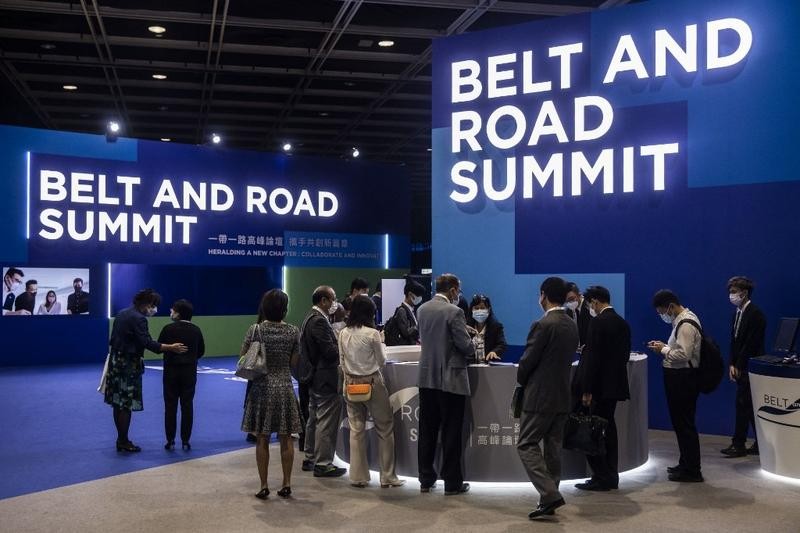2022-09-01
Xu Weiwei

The values of connectivity, joint contributions and shared benefits of the Belt and Road Initiative are what our world needs most to counter adversity for recovery and to ward off the forces of anti-connectivity and build a sustainable future, according to speakers at the seventh Belt and Road Summit. And better and more connectivity by way of the Belt and Road Initiative and the Regional Comprehensive Economic Partnership facilitates development, prosperity and peace in a counter to those forces against free trade and multilateral mechanisms, said senior officials and experts at the Hong Kong Convention and Exhibition Centre on Wednesday. “It is significant that ASEAN and like-minded partners, including China, come together to form the world’s largest free trade agreement, RCEP,” Singaporean Deputy Prime Minister and Coordinating Minister for Economic Policies Heng Swee Keat told the offline and online audience. Noting it is important that infrastructure projects are sustainable, Heng said that the Belt and Road Initiative International Green Development Coalition has been pulling together expertise and data on the region’s green transition. “As co-chairs Singapore and China will continue to work with our partners on environmentally responsible developments along the Belt and Road,” he said. John Key, the prime minister of New Zealand from 2008 to 2016, expressed his appreciation for the human progress achieved through BRI and RCEP for multilateralism and common development. Key’s ideas were echoed by Rod Eddington, chairman of Infrastructure Partnerships Australia. “The case for free trade has to be constantly made by both political leaders and business leaders,” said Eddington, who is also chairman of JP Morgan’s Asia-Pacific Advisory Council and non-executive chairman of Lion group. “There are forces in all countries which resist the movement of free goods and services around the world,” Eddington said, adding that those forces come from quite a broad political and business spectrum. ALSO READ: World needs BRI’s values of connectivity, mutual respect to build sustainable future Key said that some people are trying to change the global supply chain, adding that the United States has many elites who are among those responsible for such attempts. The trade barriers and sanctions imposed by former US president Donald Trump on China, have had a “breathtaking” impact on consumers, said Key, who is the chairman of ANZ Bank New Zealand. Moreover, the changed rhetoric of Trump in relation to China has “created another obstacle” that confronts the region, Key said. Lim Sidenine, the secretary of state at the Ministry of Public Works and Transport in Cambodia, stressed the importance of connectivity, both domestic and international, for transportation infrastructure to lead to prosperity. “For the ASEAN strategy we need to connect people to people in the country first,” he said, adding his nation has also tried to connect physical infrastructure, and to connect the institutions together. “Where there is a road, there is hope,” he said. ML Chayotid Kridakon, a Thai trade representative and an adviser to his country’s prime minister, said Thailand is embarking on a new chapter of its recovery which is strongly linked to green growth, as well as a bio-circular green economy. Luhut Binsar Pandjaitan, Indonesia’s coordinating minister of maritime affairs and investment, said that the COVID-19 pandemic had changed the whole global landscape, so, “a sustainable infrastructure development is imperative not only for in Asia, but also for all our global partners.” Lim Ban Hong, Malaysia’s deputy minister of international trade and industry, said he believes that the BRI can and must elevate the value of regional cooperation, through strong multilateral partnerships forged through innovative and inclusive solutions. “The BRI serves as a major impetus for economic growth that addresses not only infrastructure gaps that constrain mobility and development, but a fundamental issue of shared progress and prosperity,” he said. “A rule-based international system founded on a multilateral platform is the best way forward for cooperation of the magnitude and intensity of BRI.”